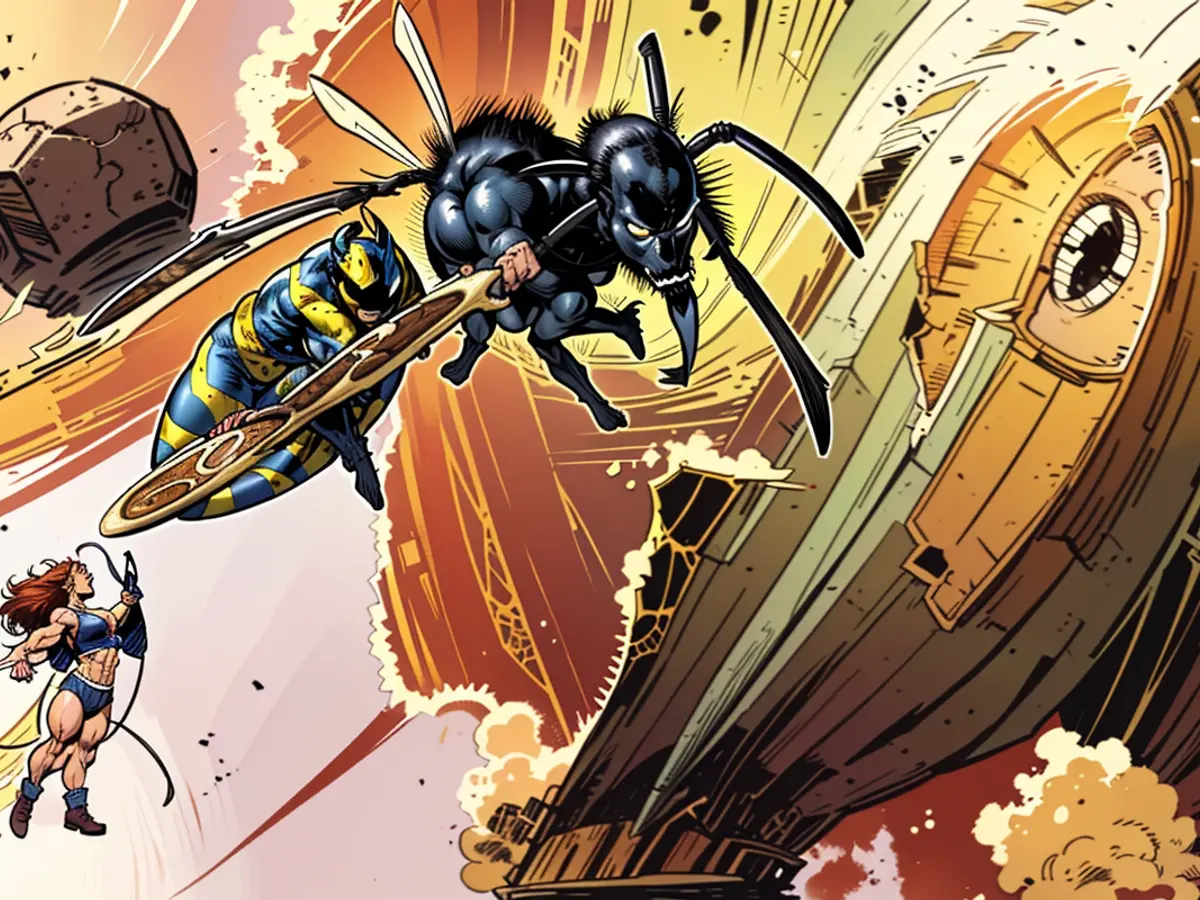- Seemingly Unfavorable Year for Wasps?
In the late summer, wasps can be a real nuisance, but it seems they're fewer in Germany compared to previous years. During the "Insect Summer" project in June and August, fewer wasps were spotted compared to 2023 and 2022. According to Laura Breitkreuz, an insect expert from the German Nature Conservation Association (NABU) in Berlin, one possible reason could be the heavy rain we had in early summer.
NABU and the Bavarian Nature Conservation Association LBV encouraged Germans to count and report the insects in their surrounding areas for an hour each, in two periods in June and August. The project aimed to gather information about beetles, bees, butterflies, and bumblebees in Germany.
Wet weather hinders wasp colonies
"There are years when wasp numbers are incredibly high," explains Breitkreuz. "Like in 2020, for example." The population of wasps fluctuates from year to year, and the weather plays a significant role. "If winter is mild and dry, more queens survive to set up new colonies in the spring. If early summer is particularly rainy, like this year, it's not ideal for colony growth," she adds.
Tarja Richter, an LBV expert in Hilpoltstein, agrees. She believes that the heavy rain this year may have affected the wasps' ability to build large colonies or delayed them compared to usual. Breitkreuz recommends that the high wasp season may extend past mid-September this year.
But why do wasps seem to be a problem when sweet treats come out in late summer?
Why wasps are considered a pest in late summer
According to the German Environment Agency, there are various species of wasps in Germany, but only the common wasp (Vespula vulgaris) and the German wasp (Vespula germanica) are bothersome at ice cream parties and barbecues. Their colonies reach their peak in late summer. "Now, there are so many that they don't just look for food in nature, but also raid ours," says Breitkreuz.
Sweet scents from foods and drinks like ice cream, juice, and fruit cake attract wasps, says Richter. Wasp larvae feed on meat, but adult wasps prefer sugar. Nectar, plant sap, and fruit are on the menu for adult wasps, while the larvae provide a sugary liquid for the worker wasps to feed on. But in late summer, this food source dries up. "Then, the wasps come to us," says Richter.
Many people find the constant buzzing of wasps annoying and intimidating. But according to Breitkreuz, their behavior shouldn't be misinterpreted as aggressive. "They need movement to see clearly," she explains.
Wasp colonies may be bothersome for a brief period of the year, but they're beneficial in general, points out Breitkreuz. Larvae consume large quantities of captured insects like mosquitoes, flies, and horseflies – which could otherwise become a nuisance themselves.
Wet weather during early summer might have negatively impacted wasp colonies, making them smaller this year. Despite being bothersome at outdoor events in late summer due to the scarcity of natural food sources, wasps play a crucial role in controlling insect pests like mosquitoes and flies.







